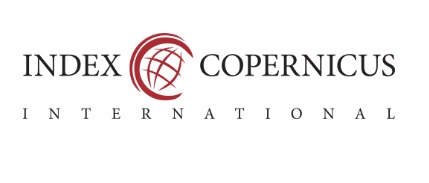Contextual Teaching and Learning Model in the Speaking Skill Textbook for the Arabic Language Education Department
Abstract
Aim: The Contextual Teaching and Learning (CTL) model is a holistic and natural instructional approach that enables students to learn educational content in a contextualized manner, linking it to their personal and social daily lives. Through this model, students actively construct knowledge based on their experiences and interactions. In this study, the CTL model is implemented through the Speech Skills textbook used in the Department of Arabic Language Education at the Islamic University of Malang.
Methodology: This research employs a qualitative approach with a case study design, aiming to explore the implementation of the CTL model in the textbook and its contribution to improving students’ speaking competencies. Data were collected through observation, interviews, and documentation, focusing on the structure, content, and pedagogical strategies embedded in the textbook.
Findings: The findings reveal that the CTL model in the Speech Skills textbook is not merely theoretical but practical and student-centered. It encourages independent learning, facilitates real-life language use, and enhances students’ motivation to express themselves fluently. The textbook integrates authentic topics and tasks related to students’ daily lives, making learning more meaningful, contextual, and communicative. This approach ultimately supports the development of learners’ linguistic proficiency, critical thinking, and social awareness, which are essential in mastering Arabic speaking skills.
References
Abdel-Malek, M. (2020). Empowering arabic learners to make meaning: A genre-based approach. System, 94, 102329.
Falaqi, M. R., & Al Anshory, A. M. (2022). Development of arabic calligraphy learning material base on self-learning/ . Ijaz Arabi Journal of Arabic Learning, 5(1).
Falaqi, M. R., & Tricahyo, A. (2025). Theoretical and historical evolutions of self-directed learning: The case for learner-led education. Oxford University Press.
Haerazi, H., Prayati, Z., & Vikasari, R. M. (2019). Practicing contextual teaching and learning (ctl) approach to improve students’reading comprehension in relation to motivation. English Review: Journal of English Education, 8(1), 139-146.
Hermawan, A. (2016). Arabic language learning methods (malang: Pt rosdakarya, 2016).135.
Hyun, C. C., Wijayanti, L. M., Asbari, M., Purwanto, A., Santoso, P. B., Igak, W., . . . Pramono, R. (2020). Implementation of contextual teaching and learning (CTL) to improve the concept and practice of love for faith-learning integration. International Journal of Control and Automation, 13(1), 365-383.
Johar, R., Ikhsan, M., Zaura, B., et al. (2018). The development of learning materials using contextual teaching learning (ctl) approach oriented on the character education. In Journal of physics: Conference series (Vol. 1088, p. 012039).
Kosim, N., & Maryani, N. (2023). Ihya al-lughah as arabic language learning model to improve arabic speaking skills. Jurnal Al Bayan: Jurnal Jurusan Pendidikan Bahasa Arab, 15(2), 399-416.
Mi’rotin, S., Rosyidi, A. W., & Arifa, Z. (2024). Compiling of conventional media-based language game book for arabic book at madrasah tsanawiyah malang. Abjadia: International Journal of Education, 9(2), 490-501.
Mutmainah, N., & Marlina, L. (2020). Novi mutmainah and lina marlina, "the implementation of the mubasyarah method in muhadatsah learning," tsaqofiya department of arabic language education iain ponorogo 2, no. 2: 30–43.
Rizal, F. M., Einosar, Y. A., Husein, M. G., Susanto, N. H. A., Nugroho, A. S., Firdausy, A., . . . Abdurrahim, I. H. (2024). Integrated curriculum: Optimizing the multiple intelligences of senior high school students in Indonesia. Journal of Advanced Research in Social Sciences and Humanities, 9(4), 1-16.
Rizal, F. M., Nurkholisoh, S., Ansharah, I. I., Alfiyah, N., Tricahyo, A., & Bahruddin, U. (2025). The impact of educational philosophy on the development of islamic education curriculum. Journal of Advanced Research in Social Sciences and Humanities, 10(1), 1-13.
Samaun, N. (2026). No titlemaharah kalam learning to improve the speaking skills of students of the arabic language education study program, faculty of tarbiyah and teacher training uin arraniri banda aceh. Arraniry, 1, 343–359.
Thu’aimah, R. A. (2000). Al usus al ammah lil manahij ta’limil lughah al arabiyyah (cairo: Darul fikr, 2000).
Yin, R. K. (2013). Validity and generalization in future case study evaluations. Evaluation, 19(3), 321-332.

This work is licensed under a Creative Commons Attribution-NonCommercial 4.0 International License.












.png)










